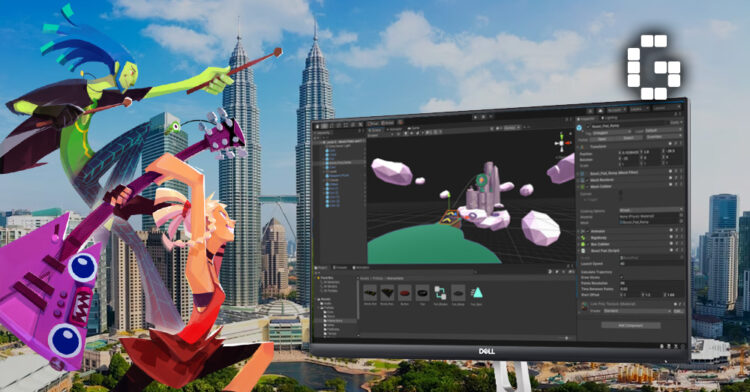This article on ‘The Growing Interest in Game Design Career in Malaysia’ was available earlier as part of the GamerBraves Newsletter. Sign up for free to gain access to more articles about news and trends in the gaming industry and community.
Games have become more accessible than ever, and so has the rising interest of people wanting to get into the game industry in Malaysia. As the industry grows, more people now see games as a business opportunity rather than mere entertainment as typically viewed.
In the past decades, we began to see more local educational institutes offering game design courses, when there were not many available previously, at least during my days as a student. I remember hearing juniors of mine venturing into the freshly established game design studies in my former college, well after I had graduated.

Regardless of what drives you to want to get a career relating to games, the harsh reality is that there are not many job opportunities in Malaysia, at least not yet. When looking for job openings on, for example, the employment website JobStreet, there are only a few positions with most not even directly involved in the game development front.
This is largely due to the game industry in Malaysia still being relatively young, with notable studios such as Metronomik Studios only being established in less than a decade. Game design as a career can also be somewhat of a highly specialized and demanding role, as such most companies have high standards and requirements when hiring, further limiting job opportunities.
Growing Opportunities
Despite the industry’s infancy, Malaysia is actually an emerging hotspot in the gaming market with the country generating a total revenue of $633 million in 2019. According to statista, Malaysia’s game market size is expected to reach a projected revenue of $649.30 million this year. Furthermore, it is anticipated that the video game market’s average revenue per user will be $104.90 million in 2024.
As with any industry and market, with growth comes more opportunities and more companies will be established to leverage it. In recent years, more and more local studios have been established, especially with support from the government such as the Malaysian Digital Economy Corporation (MDEC).

Even so, indie game studios cannot fill the gap for those passionate about getting a job in the industry as they generally house only a handful of staff. Especially, considering the ratio of individuals studying game design and related fields to new indie studios.
This is when companies such as Lemon Sky Studios, Passion Republic, and several others come in to fill that gap. These companies are known for their collaborative efforts with many high-profile game publishers, providing outsourcing services to help bring many AAA games to life with contributions to art and animation.
Throughout the years, they have also become more directly involved with the game development pipeline with efforts in co-development collaborations and contributing to game design, with Passion Republic even establishing its game development division.

International game companies such as the likes of Sony Interactive Entertainment Worldwide Studios and Bandai Namco Studios have also set up shop in Malaysia. Meanwhile, other international companies such as Shueisha Games and Kondasha are also investing in Malaysian studios and supporting the game development scene and its untapped potential.
In our recent interview with Bian Li, the Managing Director of Capcom Singapore, he said: “The gaming market in Southeast Asia holds substantial growth opportunities, particularly driven by the enthusiasm of young people, a high growth rate of revenue-to-gamer ratio, and the vast future potential of the region.”
“The youthful demographic not only fuels the current growth but also indicates a sustainable demand for gaming content in the future.”
Game Career in Malaysia
Yes, job opportunities in game design may be limited now in Malaysia due to the gradually growing young industry. However, there is a noticeable growth in the industry as more game studios are being opened up, and international companies investing in local talents or collaborating with local studios to make AAA projects to reality.
MDEC’s efforts in the annual Southeast Asia Game Developers Conference event LEVEL UP KL also helped out the local game development scene greatly with more resources, guidance, and connections.
While it may be disappointing that the Malaysian game industry is a tough bubble to burst through, as with any industry, it requires time to grow. Given that the gaming industry is still young, it may take quite some years before game-related jobs become more widely available in the market, enough for new students hoping to get into the industry. Hopefully, not so long in the future, game design and any related fields will become a lot more available for ambitious and passionate Malaysians.
















![[gamescom asia 2024] EXCLUSIVE: Oil King’s Rise from EVO Champion to a Fighting Game Icon!](https://cdn.gamerbraves.com/2024/11/Oil-King-Interview-SF6_FI-360x180.jpg)
![[gamescom asia 2024] EXCLUSIVE: GamerBee Shares His Professional Journey – Over 10 Years in Street Fighter](https://cdn.gamerbraves.com/2024/11/GamerBee-Interview-SF6_FI-360x180.jpg)








